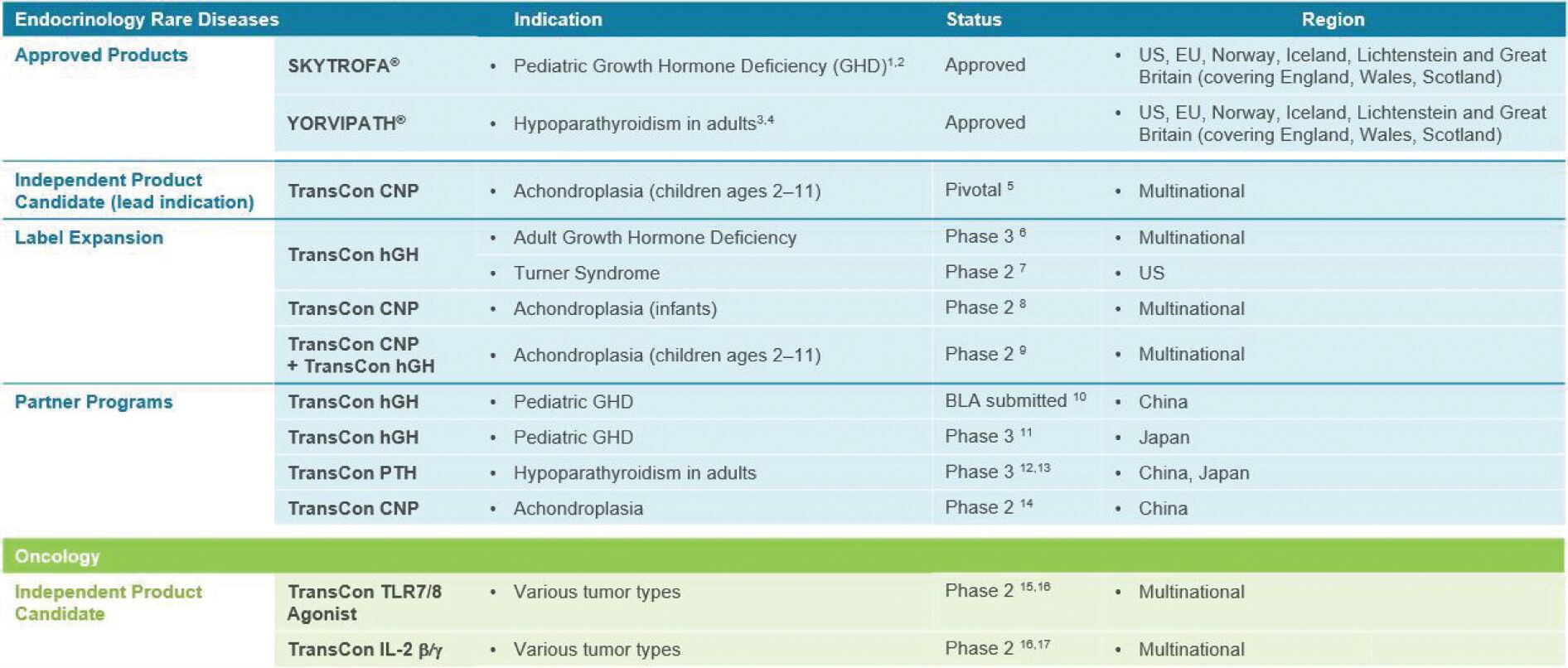The potential future measures put in place as a result of any future epidemic, pandemic, or health crisis could cause disruptions that could severely impact our business, clinical trials and commercialization activities, including by causing delays to our clinical trials, interrupting our supply chain, restricting access to our facilities, placing restrictions on our workforce and the workforce of our partners, or delaying interactions with regulators.
In addition, any future pandemic may cause further disruption to global financial markets. This may reduce our ability to access capital on favorable terms or to access capital at all. Furthermore, sustained adverse market events (such as a recession or depression) resulting from any future pandemic could materially and adversely affect our business and the price of the ADSs.
The extent to which any future epidemic, pandemic, or other health crisis impacts our business and clinical trials will depend on future developments, which are highly uncertain and cannot be predicted with confidence, such as the speed and extent of geographic spread of the disease, the duration of the outbreak, travel restrictions and social distancing in the affected areas, business closures or business disruptions and the effectiveness of actions taken in the affected areas to contain and treat the disease.
Unfavorable global and regional economic, political, health, climate and other conditions and events could adversely affect our business, financial condition or results of operations.
Our results of operations could be adversely affected by global or regional economic, political, health, climate and other conditions and events. A global financial crisis or global or regional political and economic instability, failure of banks, wars, terrorism, civil unrest, outbreaks of disease, such as COVID-19, and other unexpected events, such as natural disasters, internet security threats, and damage to global communication networks, could cause extreme volatility, disrupt our business and increase our costs and expenses. Business disruptions could include, among others, disruptions to clinical enrollment, clinical site availability, patient accessibility, conduct of our clinical trials and commercialization activities, as well as temporary closures of our facilities and the facilities of suppliers or manufacturers in our supply chain.
For example, trade policies and geopolitical disputes (including as a result of China-Taiwan geo-political instability) and other international conflicts can result in tariffs, sanctions and other measures that restrict international trade, and can materially adversely affect our business, particularly if these measures occur in regions where our third-party contract manufacturers operate. Countries may also adopt measures, such as controls on imports or exports of goods, technology or data, that could adversely impact the Company’s operations and supply chain. These geopolitical risks could also adversely affect VISEN’s activities in China.
In addition, global credit and financial markets have experienced volatility and disruptions over the past years, including concerns about declines in consumer confidence, declines in economic growth, increases in the rate of inflation, increases in borrowing rates and changes in liquidity and credit availability, and uncertainty about economic stability, including most recently in connection with actions undertaken by the U.S. Federal Reserve Board to address inflation.
The military conflict between Russia and Ukraine has increased the likelihood of supply interruptions and made it difficult to conduct business operations, including clinical trials, in the region and in nearby countries. We originally planned to conduct the Phase 3 foresiGHt trial utilizing sites in Belarus and Russia, but instead we engaged with alternative sites for the study following the outbreak of conflict in Ukraine, which adversely affected patient enrollment. Such developments could negatively impact such operations or require use to delay or suspend clinical trial activities, which may increase product development costs and harm our business.
Separately, on October 7, 2023, Hamas, an organization designated by the U.S. as a terrorist organization, launched a series of coordinated attacks from the Gaza Strip onto Israel. On October 8, 2023, Israel formally declared war on Hamas, and the armed conflict is ongoing as of the date of this filing. Hostilities between Israel and Hamas could escalate and involve surrounding countries in the Middle East. To date, we have not experienced any material interruptions in our infrastructure, supplies, technology systems, or networks needed to support our operations as a result of the conflict between Israel and Hamas.
S-43


